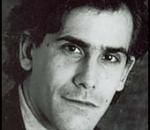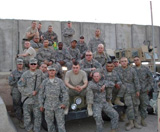White Plains High School Alumni
White Plains, New York (NY)
Alumni Stories
David Corn
Class of 1977
David Corn is an American political journalist and author. He works as the Washington editor for The Nation and has also appeared regularly on FOX News and National Public Radio.
As an author, Corn's work includes both nonfiction and fiction, generally dealing with government and politics. Corn has also frequently written as a book reviewer for a number of publications. On one occasion, he criticized his own organization when Nation Books (a sibling to The Nation) chose to publish the translation of a controversial French book on Osama bin Laden and the September 11 attacks. The book, Forbidden Truth by Jean-Charles Brisard and Guillaume Dasquie, suggested that the attacks resulted after a breakdown in talks between the Taliban and the United States to run an oil pipeline through Afghanistan. Corn argued that publishing "contrived conspiracy theories" undermined the ability to expose actual governmental misbehavior.[1]
Contents
[hide]
1 Bookwriting efforts
2 The Plame affair
3 Publications
4 Notes
5 External links
[edit]Bookwriting efforts
Corn's first book was a 1994 biography of Ted Shackley, a longtime CIA official, which received mixed reviews. The book used Shackley's climb through the CIA bureaucracy to illustrate how the Agency worked and to follow some of its Cold War-era covert operations. Roger Warner called it "an impressive feat of research" in the Washington Post, but Joseph Finder in the New York Times claimed Corn was seriously distorting history to blame Shackley for a series of CIA failings.[2] [3]
Corn moved on to fiction with a contribution to Unusual Suspects, a paperback collection of crime stories that was published in 1996 as a fundraiser to combat world hunger.[4] His first novel, Deep Background, was a conspiracy thriller based around the assassination of a President at a White House press conference and the ensuing investigations. Reviews praised Corn's mastery of the political atmosphere and characters, although they split on whether this was a virtue or, coming at the conclusion of the Clinton years, already all-too-familiar territory.[5][6]
With the arrival of George W. Bush, Corn became a harsh critic of the President. His next book was titled The Lies of George W. Bush, charging that Bush had deliberately and systematically "mugged the truth" as part of his political strategy. It found fault with the media for failing to report this effectively, and broke from typical journalistic practice with its explicit charge of lying, a term normally avoided as editorializing.[7] [8]
In particular, Corn criticized many of the arguments offered to justify the 2003 Invasion of Iraq. He challenged New York Times columnist William Safire for claiming links between Saddam Hussein and Al-Qaeda.[9] Together with Michael Isikoff of Newsweek, Corn also analyzed the Bush administration's drive toward the invasion in their book, Hubris. Reviewers sympathetic to their thesis commended the book for its comprehensive analysis of the march to war, although one thought the coverage of the Plame affair bordered on the obsessive.[10][11]
[edit]The Plame affair
Main article: Plame affair
Corn had been personally involved in the early coverage of the Plame affair, the controversy over leaks to the media of the name of CIA analyst Valerie Plame. After Plame's identity was revealed by Robert Novak in a column July 14, 2003, Corn was the first to report that Plame had been working covertly, in an article posted July 17.[12] [13] He criticized Novak for publishing the information, raising the possibility that the leak of Plame's identity might have violated the Intelligence Identities Protection Act.[14]
Novak, for his part, disputed that Plame had actually been a covert operative, at least by the time her identity was revealed. He also objected to the negative portrayal of him in Hubris, for which he blamed Corn more than Isikoff. He said of Corn, "Nobody was more responsible for bloating this episode." Novak felt that Corn was too close with former ambassador Joseph Wilson, Plame's husband and a key figure in criticism of the administration's arguments for invasion.[15]
As an author, Corn's work includes both nonfiction and fiction, generally dealing with government and politics. Corn has also frequently written as a book reviewer for a number of publications. On one occasion, he criticized his own organization when Nation Books (a sibling to The Nation) chose to publish the translation of a controversial French book on Osama bin Laden and the September 11 attacks. The book, Forbidden Truth by Jean-Charles Brisard and Guillaume Dasquie, suggested that the attacks resulted after a breakdown in talks between the Taliban and the United States to run an oil pipeline through Afghanistan. Corn argued that publishing "contrived conspiracy theories" undermined the ability to expose actual governmental misbehavior.[1]
Contents
[hide]
1 Bookwriting efforts
2 The Plame affair
3 Publications
4 Notes
5 External links
[edit]Bookwriting efforts
Corn's first book was a 1994 biography of Ted Shackley, a longtime CIA official, which received mixed reviews. The book used Shackley's climb through the CIA bureaucracy to illustrate how the Agency worked and to follow some of its Cold War-era covert operations. Roger Warner called it "an impressive feat of research" in the Washington Post, but Joseph Finder in the New York Times claimed Corn was seriously distorting history to blame Shackley for a series of CIA failings.[2] [3]
Corn moved on to fiction with a contribution to Unusual Suspects, a paperback collection of crime stories that was published in 1996 as a fundraiser to combat world hunger.[4] His first novel, Deep Background, was a conspiracy thriller based around the assassination of a President at a White House press conference and the ensuing investigations. Reviews praised Corn's mastery of the political atmosphere and characters, although they split on whether this was a virtue or, coming at the conclusion of the Clinton years, already all-too-familiar territory.[5][6]
With the arrival of George W. Bush, Corn became a harsh critic of the President. His next book was titled The Lies of George W. Bush, charging that Bush had deliberately and systematically "mugged the truth" as part of his political strategy. It found fault with the media for failing to report this effectively, and broke from typical journalistic practice with its explicit charge of lying, a term normally avoided as editorializing.[7] [8]
In particular, Corn criticized many of the arguments offered to justify the 2003 Invasion of Iraq. He challenged New York Times columnist William Safire for claiming links between Saddam Hussein and Al-Qaeda.[9] Together with Michael Isikoff of Newsweek, Corn also analyzed the Bush administration's drive toward the invasion in their book, Hubris. Reviewers sympathetic to their thesis commended the book for its comprehensive analysis of the march to war, although one thought the coverage of the Plame affair bordered on the obsessive.[10][11]
[edit]The Plame affair
Main article: Plame affair
Corn had been personally involved in the early coverage of the Plame affair, the controversy over leaks to the media of the name of CIA analyst Valerie Plame. After Plame's identity was revealed by Robert Novak in a column July 14, 2003, Corn was the first to report that Plame had been working covertly, in an article posted July 17.[12] [13] He criticized Novak for publishing the information, raising the possibility that the leak of Plame's identity might have violated the Intelligence Identities Protection Act.[14]
Novak, for his part, disputed that Plame had actually been a covert operative, at least by the time her identity was revealed. He also objected to the negative portrayal of him in Hubris, for which he blamed Corn more than Isikoff. He said of Corn, "Nobody was more responsible for bloating this episode." Novak felt that Corn was too close with former ambassador Joseph Wilson, Plame's husband and a key figure in criticism of the administration's arguments for invasion.[15]

Recent Members
| Fred Iffland Fred Iffland | 1965 |
| Joanne Scheiber | 1970 |
| Keisha Montano | 2018 |
| Larry Franklin Franklin | 1980 |
| Mia Denice Leggiero | 2022 |
| Rex Kiniry Harrienger | 1972 |
| Rita Ledonne | 1964 |
| Robert Saland Robert Saland | 1974 |
Military Alumni
Honoring Our Heroes
This area is dedicated to our alumni that have served or are serving in our armed forces!
Lost Class Rings
Have you lost your White Plains High School class ring? Have you found someone's class ring? Visit our lost class ring page to search for your class ring or post information about a found ring.


